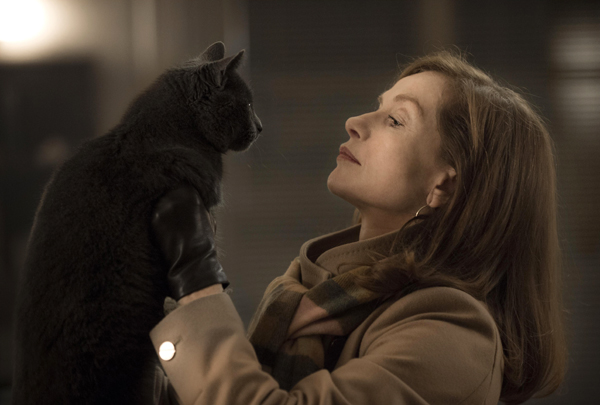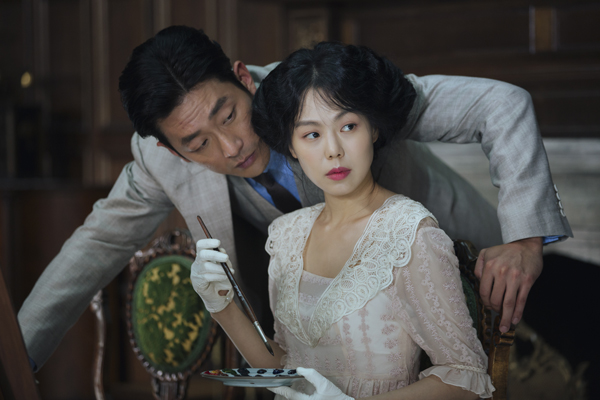Even before the Toronto International Film Festival (TIFF) unspools this Thursday, there are surefire recommendations among the 296 feature films in its massive programming. The best films at Cannes will be playing first at TIFF before setting out on the North American festival circuit. Of the ones that screened in Cannes’ official competition, the top picks come down to three works in particular.
British director Ken Loach won his second Palme d’Or for I, Daniel Blake, the most emotionally appealing kitchen sink drama in quite some time. It earns every tear it twists out of you. However, it’s worth remembering that the judgment of the Cannes jury is highly subjective, and this year’s head-scratching decisions by the group, led by director George Miller and which included Kirsten Dunst, excluded two notable films.
In the not-for-everyone category, Paul Verhoeven found a game partner-in-crime in Isabelle Huppert for his satiric, squirm-producing, pitch-black comedy of mores, Elle. True, the actress has gone to the dark side many times before, but rarely has she been so nonchalantly mocking, so effortless in her condescension (on screen anyway). Huppert will be appearing in two more films at Toronto: Things to Come and Souvenir. Additionally, she will appear at TIFF’s “In Conversation with…” career sit-down during the event-filled opening weekend. She will also be appearing onstage at the Brooklyn Academy of Music as the incestuous queen in the French-language stage adaptation Phaedra(s). It’s her fall season to own.
It was very peculiar that Maren Ade’s Toni Erdmann was shut out at Cannes. Not that awards are a popularity contest (so they say), but it had, hands down, the warmest reception of any film there. (It’s startling to hear boisterous laughter at any Cannes screenings, considering the earnest and serious nature of most of the works.) Even if the jury found the multilayered emotional push/pull between a trickster dad and his depressed, bottled-up adult daughter a slow-burner, the acting makes you believe that you’re witnessing improvisation, and the comic timing in the last 45 minutes is so precise it feels off-the-cuff. Its star, Sandra Hüller, gives an unguarded and quietly fierce performance. Ade may take her time, beat by beat, unraveling her characters’ demeanor, but it’s well worth the wait. Both Toni Erdmann and Elle will be released before the end of the year by Sony Pictures Classics.
What’s more, two animated gems that premiered at Cannes come to Toronto: the visually mesmerizing The Red Turtle and the rowdy charmer and perceptive My Life as a Courgette, which boasts a spot-on depiction of childhood. Again, Sony Pictures Classics will release Turtle in November for a one-week run for Academy Award consideration—it is a shoe-in for a nomination—and distributor GKids just announced that it will be releasing Courgette. Don’t be surprised if that stop-motion animated picture is invited to the ceremony in February, too; it’s Switzerland’s submission for the best foreign language Oscar.
While the above-mentioned were the standouts at Cannes, there were several films that premiered last May that disappointed and that are now making their way to Toronto. Critics’ favorites Jean-Pierre and Luc Dardenne hit a wall with their latest film, The Unknown Girl. (Out of guilt, a young Belgium doctor searches for the killer of an immigrant sex worker, feeling tangentially responsible for her death.) Reportedly, it has been reedited, with seven minutes cut. It will be fascinating to see if this significantly changes the work, given that the least credible moments occurred during the most pivotal scenes.
Pedro Almodóvar combined three Alice Munro short stores and gave them the deluxe treatment in his crimson-drenched Julieta. Centered on the indiscretion of a beautiful blonde, its secrets and lies less unfold than hit plot point after plot point, set to a continuous Bernard Herrmann-esque score (heavy on the strings). It feels as if every five minutes someone says something along the lines of, “Sorry that I have never told you this, but for years ….”
Even Personal Shopper, which won Olivier Assayas a directing award at Cannes, was a loosely-plotted ghost story with a tone so somber that it kept the scares and mystery in reserve—exactly who, or what, is playing a cat-and-mouse mind game with the medium who recently lost her twin brother? It offers, however, star Kristen Stewart’s most varied and liveliest performance, though it’s ever cool. It’ll make you wished she acted half this scared in any of the subdued “Twilight” movies.
Also arriving at TIFF is the top prize winner in Cannes’ Un Certain Regard section (for up-and-coming filmmakers, more or less), the beautifully-rendered but monotone Finnish film The Happiest Day in the Life of Olli Mäki, filmed in stark black-and-white 16mm and directed by Juho Kuosmanen. It’s another reminder that award-bestowing juries have subjective tastes. Set in a distinctively pre-Beatles 1962, a 25-year-old boxer, Olli, has signed a deal to face-off for the world featherweight championship and leaves the provinces and his new girlfriend behind for treeless, concrete Helsinki. But first Olli has to shed pounds to qualify in the division. Second challenge: his heart lies elsewhere, and so he goes through the motions at both the gym and in promotional appearances.
The modest movie has a premise more suited for a short film. After the first 20 minutes, there’s little to learn about any of the characters, and the ending is preordained, even if you don’t already know this film is based on a real-life figure. Crucially, for an athlete who won the 1959 European lightweight championship (as an amateur), Olli shrugs off ambition, let alone enthusiasm for boxing, undermining any inner conflict. Instead, he’d rather be known as the “Baker of Kokkola” and fly a kite rather than train for the match (which, granted, means sweating in the sauna and throwing up). It’s difficult for the audience to care when he doesn’t either.
However, in terms of a work that sets out to ensnare an audience through its intoxicating production design, noirish storyline, and sensuality, no other selection at Cannes matched Park Chan-wook’s pervy, picture-perfect period piece The Handmaiden, which makes its North American debut at TIFF before its release stateside in October.
Park freely shifts the setting of Sarah Waters’s 2002 novel Fingersmith from Victorian London to 1930s Korea under Japanese colonial rule. (The Japanese dialogue is conveniently translated in yellow subtitles; Korean is in white.) Taking place within a rigid class system of collaborators and the dominated, it’s as decorous as Downton Abbey, though with dismemberment and sex, lots of sex.
A tall, suave master con artist, the Count (Ha Jung-woo), handpicks Sookee (newcomer Kim Tae-ri), a country bumpkin and skilled petty thief, to pose as the servant to the upper-crusty Hideko (Kim Min-hee), a Japanese orphaned heiress living in a secluded estate. The name Sookee, by the way, means mouse, somewhat indicative of her tentative nature. She’s to infiltrate the household, paving the way for the Count to court and marry Hideko, and he will play his part in the charade, posing as a book connoisseur; Hideko’s guardian is a voracious collector of a particular kind of library (any volume of which would have been deemed obscene by the U.S. Postal Service at the time—this is where the pervy comes in).
If the plan succeeds, the Count will give Sookee a cut of the dowry. He’s assured that Hideko will accept his proposal, but it has never occurred to him that Sookee will follow his direction so emphatically and become so close to her mistress at to bed her. The scheme depends on the participants being a most convincing actors, or liars, in order to fool the sap—and the audience.
Viewers will leave humming the sex—I mean, sets; well, probably the sex, too. The bedroom scenes are upfront. If told through the male gaze, they are also part of the filmmaker’s lusciously lurid visual design, which in turn, is part of the filmmaker’s focus on seduction—of the audience. The art direction is ornate, thanks in part to the main setting: an estate, half of which is in the style of English gothic and the rest Japanese, to reflect its Korean master’s fondness for Japanese and British culture. (If Rebecca’s Manderley comes to mind, it’s not accidental.)
The movie’s also incredibly intimate. For all of its genre trappings, it’s a love story, when laid bare (the story, not the actress). Even if viewers are on to the many double-crosses, they will wallow in the atmosphere.
The narrative is split into three parts, each point-of-view from a different side of the triangle. It’s quite old-fashioned, and leavened with humor, suspense, and a stone-cold villain who earns any hisses coming his way. It turns out to be a not-so-guilty pulpy pleasure after all.









Leave A Comment